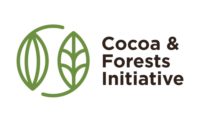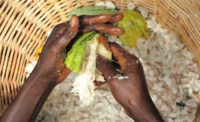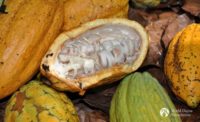Cocoa & Forests Initiative (CFI) signatories have reported progress toward their goal of ending deforestation and restoring the forests of Côte d’Ivoire and Ghana.
In 2018-2019, CFI signatory companies and the governments of Côte d’Ivoire and Ghana began implementing activities that will help meet their 2017 joint commitment to end cocoa-related deforestation and forest degradation.
Companies’ actions included putting in place systems to eliminate deforestation from their cocoa supply chain, including mapping more than one million farms in their direct supply chain. They have also distributed more than 4 million trees to farmers to establish agroforestry systems and reforest degraded forests in Côte d’Ivoire and Ghana.
Governments’ efforts have focused on creating policy, legal and institutional frameworks that can support implementation of CFI signatories’ programs. This included the introduction of a new Forest Code in Côte d’Ivoire, strengthened collaboration on a landscape level in CFI priority areas in Ghana, and taking measures to actively promote agroforestry in both countries. The Governments have also released forest boundary maps and updated land cover maps to help signatory companies identify areas that are at risk of deforestation.
CFI is a joint partnership of the governments of Côte d’Ivoire and Ghana, and 35 cocoa and chocolate companies facilitated by IDH, the Sustainable Trade Initiative and the World Cocoa Foundation (WCF), with support from the Dutch Ministry of Foreign Affairs (BUZA), Partnership for Forests (P4F) through the United Kingdom Government’s Department for International Development, the U.S. Agency for International Development (USAID) and the World Bank. The Progress Reports contain data and testimonials from companies, government officials, civil society leaders and farmers that have been working together, since March 2017, to end deforestation and forest degradation in the cocoa supply chain.
“We are proud to present the CFI achievements so far, and in particular, progress achieved in terms of promotion of climate-smart cocoa, clarification of tree tenure and facilitation of landscape-level partnerships,” said Kwaku Asomah-Cheremeh, Ghana minister of lands and natural resources. “Moving forward, we need to continue working together to mobilize sustainable funding to make further progress with our commitments, especially in key areas of satellite-based monitoring and forest categorization.”
Alain-Richard Donwahi, minister of water and forests in Côte d’Ivoire, added the country has made significant progress, including through its Forest Code.
“This new code defines the legal and regulatory framework for the implementation of the CFI, including the creation of a differentiated approach to classified forests, which also takes into account the needs of communities whose livelihoods depend on forests,” he said. “The next challenge will be for us to mobilize further funds to support implementation of this ambitious policy, in close collaboration with the private sector, and with support from civil society organizations.”
World Cocoa Foundation President Richard Scobey added the foundation is proud of the initiative’s first steps.
“In 2020, we will notably accelerate private sector collaboration across cocoa landscapes and, in partnership with governments, put in place effective tools to monitor and eliminate any new deforestation,” he said.




